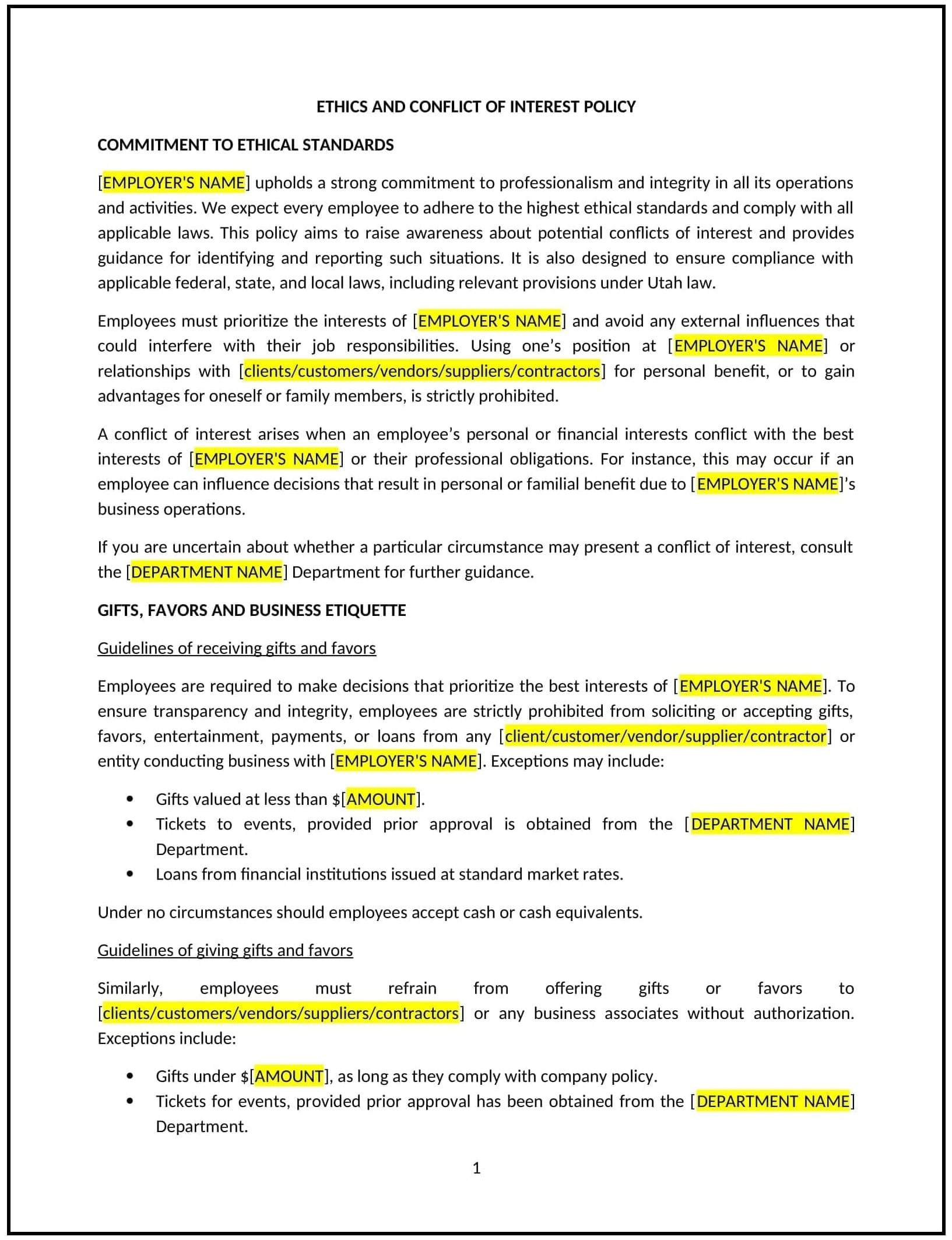Ethics and conflict of interest policy (Utah): Free template
Got contracts to review? While you're here for policies, let Cobrief make contract review effortless—start your free review now.

Customize this template for free
Ethics and conflict of interest policy (Utah)
This ethics and conflict of interest policy is designed to help Utah businesses establish guidelines for maintaining ethical standards and addressing potential conflicts of interest. It outlines expectations for employee behavior, procedures for disclosing conflicts, and steps for resolving ethical concerns.
By adopting this policy, businesses can promote integrity, build trust, and align with general best practices for ethical business conduct.
How to use this ethics and conflict of interest policy (Utah)
- Define ethical standards: Outline the business’s commitment to honesty, fairness, and transparency in all operations.
- Address conflicts of interest: Specify what constitutes a conflict of interest, such as personal relationships or financial interests that could influence business decisions.
- Establish disclosure procedures: Provide steps for employees to disclose potential conflicts of interest.
- Outline resolution processes: Define how conflicts of interest will be addressed, such as recusal or restructuring responsibilities.
- Train employees: Educate employees on ethical standards, conflict of interest scenarios, and disclosure procedures.
- Monitor compliance: Regularly review business practices to ensure adherence to ethical standards.
- Review and update: Assess the policy annually to ensure it aligns with evolving business needs and ethical considerations.
Benefits of using this ethics and conflict of interest policy (Utah)
This policy offers several advantages for Utah businesses:
- Promotes integrity: Reinforces a culture of honesty, fairness, and transparency.
- Builds trust: Demonstrates a commitment to ethical behavior, enhancing relationships with employees, customers, and stakeholders.
- Reduces risks: Minimizes the potential for legal or reputational issues arising from unethical behavior or conflicts of interest.
- Aligns with best practices: Provides a structured approach to managing ethical concerns and conflicts of interest.
- Supports decision-making: Ensures business decisions are made objectively and in the best interest of the company.
Tips for using this ethics and conflict of interest policy (Utah)
- Communicate the policy: Share the policy with employees and include it in the employee handbook.
- Provide training: Educate employees on ethical standards, conflict of interest scenarios, and disclosure procedures.
- Monitor compliance: Regularly review business practices to ensure adherence to ethical standards.
- Address issues promptly: Take corrective action if ethical concerns or conflicts of interest arise.
- Update regularly: Assess the policy annually to ensure it aligns with evolving business needs and ethical considerations.